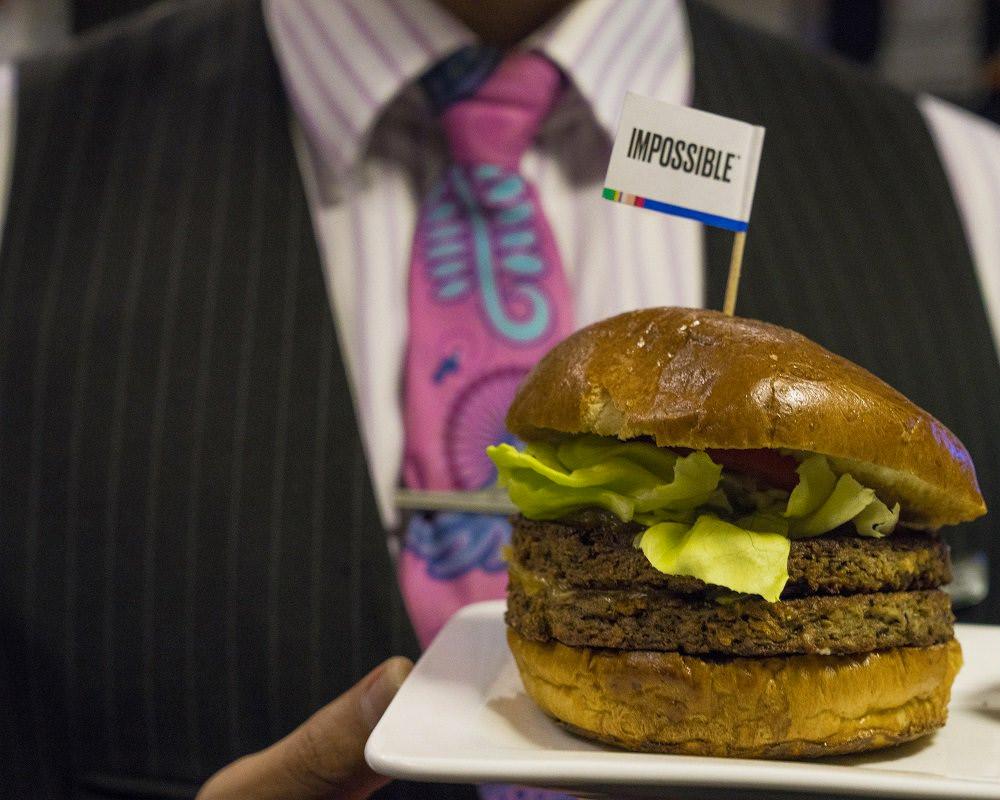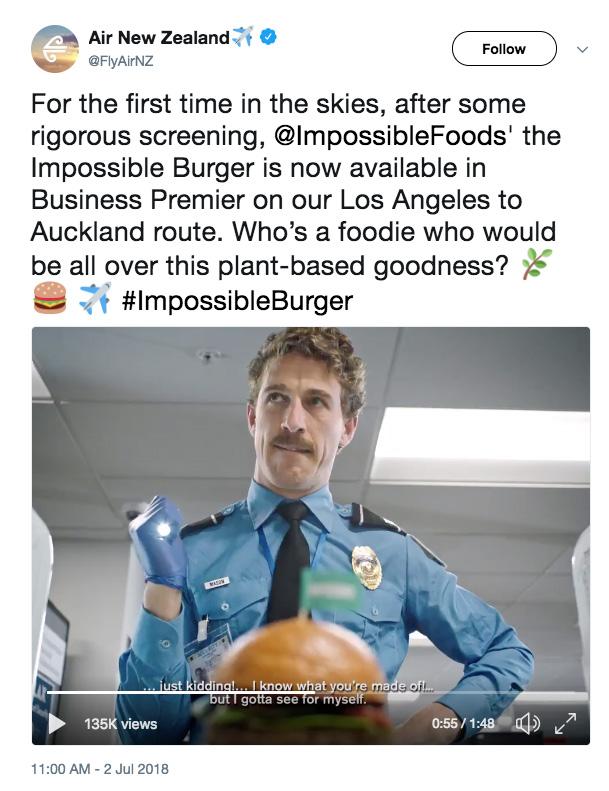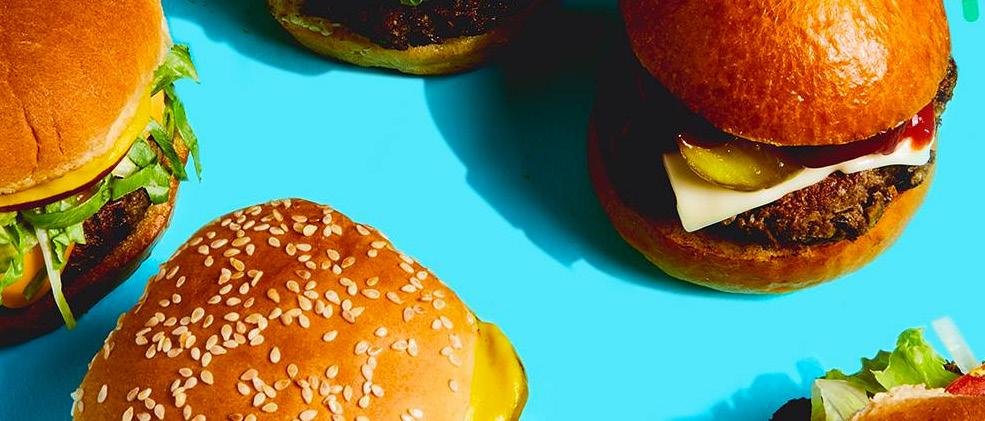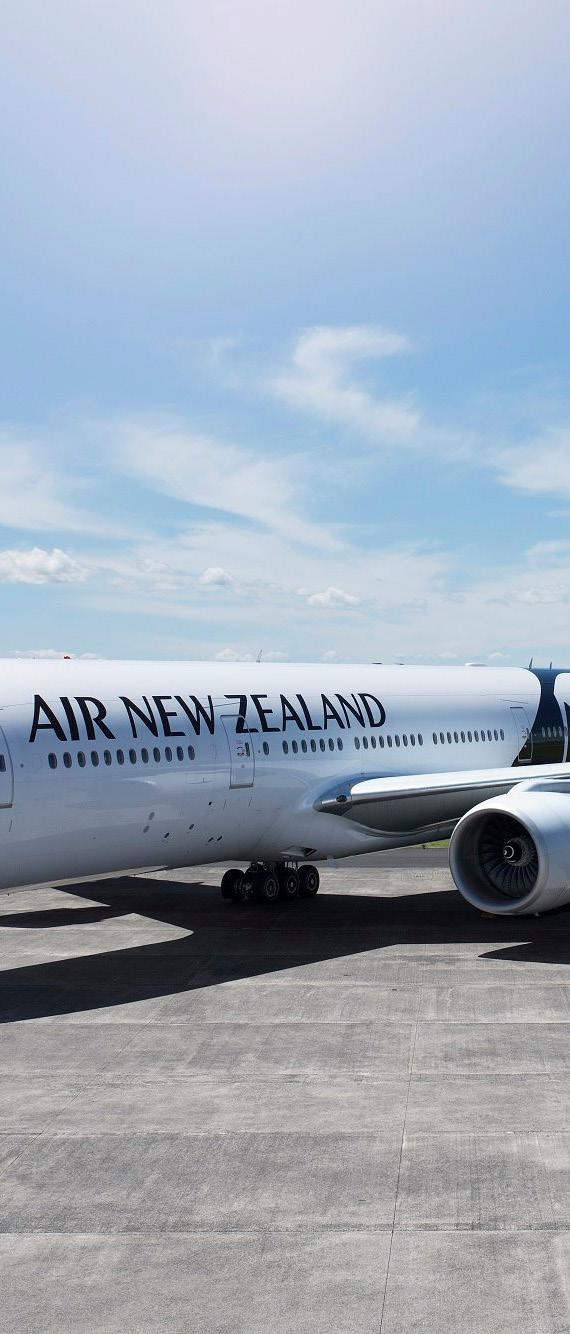
3 minute read
Air New Zealand-The Impossible Burger
AIR NEW ZEALAND - THE IMPOSSIBLE BURGER
“What is the Impossible Burger and why is everyone obsessed with it?”, asked Metro US on 26 June.
Advertisement

The Impossible Burger, which has been making waves worldwide, is a veggie burger developed by a San Francisco company that looks, “bleeds”, “sizzles” and (depending on your point of view) tastes like a beef burger.
The frst airline to serve it has been Air New Zealand, which is offering it in its Business Premier Cabin between Los Angeles and Auckland.
To mark its introduction, Air New Zealand produced a funny, short flm that nods at The Impossible Burger’s almost celebrity status.

In it, two flight attendants walk through security at LAX and greet a TSA employee, who starts scanning their bags. He stops when he spots a dish with a burger going through, after which he takes it to the side exclaiming, “it’s the Impossible Burger, right?!”
He then proceeds to examine it, making a number of jokes (“would you spread your buns”), calls a colleague over, and then finally lets the Impossible Burger depart with the flight attendants.
So far so good. Air New Zealand had a PR coup in stocking a product, which is being talked about worldwide.

It reinforces what the Australian Financial Review calls its reputation for “being a progressive, forward-thinking airline” (in the same article the writer mentions she’s tried the Impossible Burger, commenting on its ‘scary likeness’ to the real thing).
Politicians accuse the airline of hurting local farmers
Not everyone back home in New Zealand, which has an active beef farming industry, was best pleased though.
Politicians, right up to the acting prime minister Winston Peters have got involved, criticising the airline for serving the product.
Peters commented, “when Air New Zealand was in trouble, it was bailed out by the taxpayer, and by a lot of farming agricultural money. Our economy, and this airline is, as I say, the result of farmers’ tax payers money. And the meat industry, and that is genuine meat, not fake meat, is what we’re about.”
Meanwhile National Party MP Nathan Guy chimed in with “The national carrier should be pushing our premium products and helping sell NZ to the world.”
Many New Zealanders on social media hit back. For example, entrepreneur Steve Ardagh said, “You sound like the CEO of Blockbuster complaining about Netflix.” Air New Zealand itself stuck to its guns, pointing out that “in the past year alone, we proudly served around 1.3m New Zealand sourced beef and lamb meals to customers from around the world.

“Air New Zealand makes no apology for offering innovative product choices for its customers and will continue to do so in the future.”
Certainly, the fact that a number of New Zealand politicians were up in arms about the Impossible Burger, means that a lot more people now know that Air New Zealand has it on board. Coverage has included the Guardian, Independent (UK), De Standaard (Belgium), and Diario de Noticias (Portugal) to name a few.
Key takeaway
Both the Etihad Everest expedition and the Air New Zealand ‘Impossible Burger’ move point to a wider truth, something highlighted by Shashank Nigam in a recent SimpliLive episode.
Namely, despite the bad rap airline food has received over the years, it’s actually a very important part of an airline’s success. Two of the eight airlines profled in Shashank Nigam’s book, SOAR focus particularly heavily on food.
Turkish Airlines has on-board chefs, and the CEO told Shashank Nigam for the book interview that the airline did away with in-fight duty free to concentrate on food. Meanwhile, Air Asia sells its in-fight meals at select airports.

So looking at the Air New Zealand story in particular, it gets across the message that “the airline is trendy, it’s up to speed with the latest food trends out there, and it’s serving the impossible burger.”
However, it also shows that “differentiating service is not an impossible task.”










